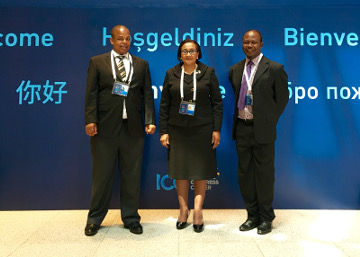The SADC Executive Secretary led a SADC Secretariat delegation to the first-ever World Humanitarian Summit held in Istanbul, Turkey from 23rd to 24th May 2016. The Summit was a global call to action by the United Nations Secretary-General Ban Ki-moon.
The Summit was meant to re-inspire and reinvigorate a commitment to humanity and to the universality of humanitarian principles, initiate a set of concrete actions and commitments aimed at enabling countries and communities to better prepare for and respond to crises, and be resilient to shocks; and to share best practices which can help save lives around the world and put affected people at the centre of humanitarian action, and alleviate suffering.
The Summit came at a time when the SADC region is facing one of the worst El Nino-induced droughts in 30 years, which has resulted in widespread crop failures and thousands of livestock deaths. It was estimated that around 32 million people across Southern Africa will require humanitarian assistance, which prompted the SADC Council of Ministers to mandate the Secretariat to coordinate a regional humanitarian response to deal with the emergency.
The discussions at the Summit, which were centred around how to make humanitarian assistance actions more effective and efficient, will assist the Secretariat in developing a regional response plan that addresses the short-term and long-term regional and national requirements in a manner that takes into account best practices and international humanitarian principles. In the same vein, the exchange of experiences and good practices with other regional bodies will enrich the suite of interventions that are aimed at building resilience for local communities exposed to different hazards in the region. One of such interventions is the development of the strategy for disaster preparedness and response, which the Secretariat is currently being developed to guide the region's response to disasters.
The Summit was held at the highest political level, including Heads of State and Government and over 5,000 participants representing global leaders from government, business, aid organizations, civil society, affected communities and youth, among others.
The Summit resulted in reports reflecting the main discussions, outcomes and commitments emerging from the Summit and the way forward beyond Istanbul, together with a concrete set of actions in support of the Agenda for Humanity, which will be presented before Member States at the 71st Session of the General Assembly.


